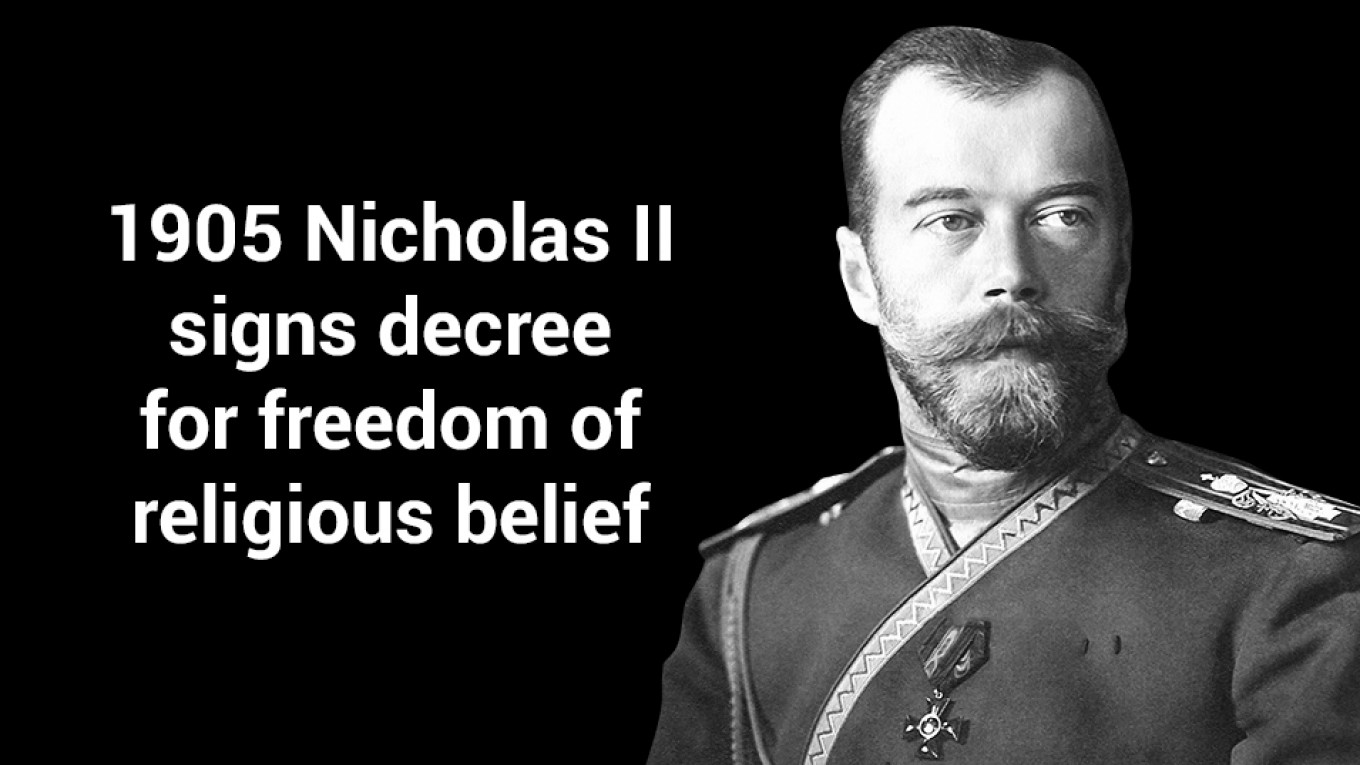
On April 30, 1905, Emperor Nicholas II issued a decree on “Tolerance Development.” It would be the first in a series meant to reform relations between Russia’s church and state.
This Edict of Toleration — a declaration made by a ruler or government that protects practitioners of a religion from persecution — gave the religions of Russians who were not Orthodox Christians legal status at a time when more than 70 percent of the population belonged to the Russian Orthodox Church.
In this decree, the rights that were once exclusively reserved for Orthodox citizens were now extended to other religions. The decree included a number of new laws; Orthodox Christians were allowed to adopt children from other religions, and mixed marriages between different religions were permitted.
While this might seem like a small step in much of today’s world, given the state religion and dominance of the Orthodox church this was seen and accepted as a step in the right direction.






